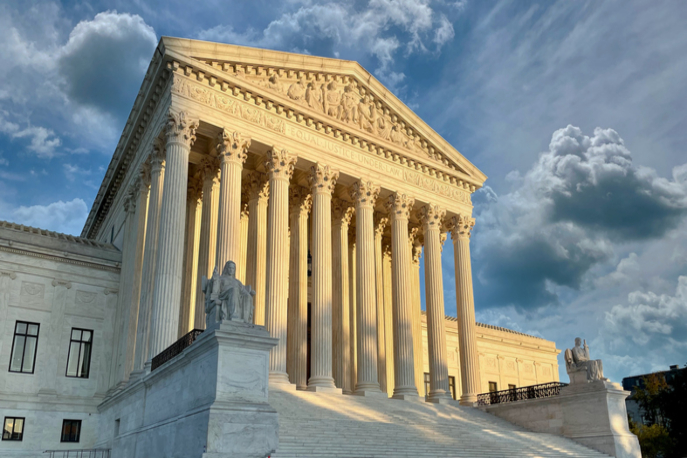The U.S. Supreme Court is expected to heavily restrict or ban race-based affirmative action in college admissions by the end of the month, a ruling with impacts that would almost certainly extend out of higher education and into the business world, affecting talent recruitment pipelines and a range of corporate diversity efforts.
Public opinion on the issue is complicated: while 62 percent of Americans say they are opposed to college admissions policies that consider race and ethnicity, 56 percent of employed adults think focusing on DEI at work is a good thing. Though the concept of affirmative action has roots in workplace law, it’s largely viewed now in the context of higher education, only muddying the waters more when it comes potential impact of the SCOTUS decision.
While the high court’s ruling won’t directly apply to workplace policies, as employers are governed by Title VII and separate state and federal anti-discrimination laws, an adverse decision could allow for increased challenges to voluntary workplace programs, where opponents might argue such programs are no longer necessary to eliminate an imbalance in the job market. On top of that, critics might argue that programs aimed at increasing diversity place undue emphasis on protected groups.
As the decision date nears, companies should take a few steps to ensure preparation for any possible outcome:
–Review existing DEI policies: Employers should take a fresh eye to workplace DEI policies and training materials to understand vulnerabilities. Where possible, strengthen language and move away from anything indicating unlawful preferences for any one group. Consult with lawyers internally if possible.
–Keep an ear to the ground: While this is a decision at the federal level, state governments in red states like Texas and Florida are already restricting DEI programs. Make sure your company is up to date on current legislation and regulation that may have further impact on your workplace policies.
–Prepare internal communications: A decision either way will likely impact a range of employees in your organization, whether it be through policies that apply to them, the work they produce, or their personal reaction. Ensure your organization has a unified voice when speaking about your DEI policies, and craft language in collaboration with your lawyers that reaffirms your commitment to diversity without touching on any legal landmines.
Once the Supreme Court’s decision is issued, companies should be prepared for a multitude of scenarios, ranging from internal pressures from employees and ERGs to potential litigation and activist investor challenges. Through the uncertainty, it’s most important to ensure that employees feel supported and that your company remains true to its values and commitments related to DEI.
RALIANCE is a trusted adviser for organizations committed to building cultures that are safe, equitable, and respectful. RALIANCE offers unparalleled expertise in serving survivors of sexual harassment, misconduct, and abuse which drives our mission to help organizations across sectors create inclusive environments for all. For more information, please visit www.RALIANCE.org.

